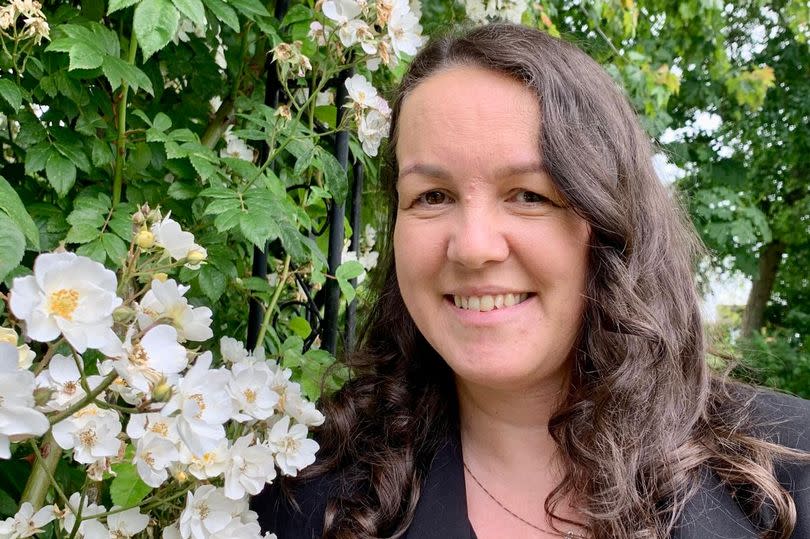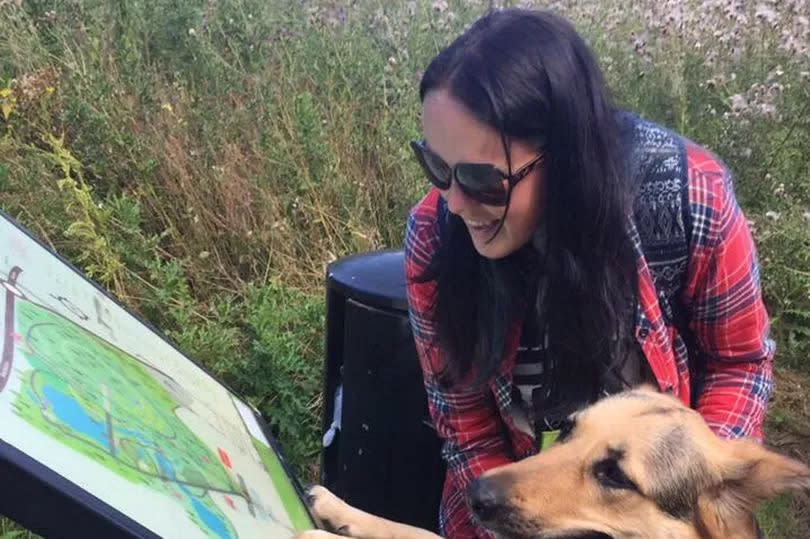Woman's frustration at having to share secret with husband

“Every time I’ve voted, I’ve had someone else do it for me.”
It’s more than 150 years since the UK’s establishment of the right to vote in secret. Despite this, Louise Miller, from West Derby, has never voted independently - and with a general election looming, she fears she won’t be able to this time round either.
The 42-year-old told the ECHO: “The idea that I have to rely on someone else for such an important process and decision, it shouldn’t be like that. I should be confident enough in my ability to vote by myself.”
Read more: Iceland says do not eat food product due to 'serious health risks'
Read more: Altcourse inmate's heartbreaking 'if I die tonight' message to mum
Louise was born partially sighted and as she has gotten older, her “unpredictable genetic condition” has gradually gotten worse. For many years, she measured her eyesight daily by checking to see if she could still make out the sell-by date on milk.
More recently, the mum-of-one has been relying on the app, Seeing AI, to read out information she needs but can’t necessarily see. The same app is being recommended to visually-impaired people to voice the options come Thursday, July 4.
Louise said: “I’ve never once been offered large print on the voting ballot or extra lighting. Not once and I go in with a white cane so it’s very obvious I have a visual impairment.
“This time round, I will be asking for the additional lighting because the difference it makes is phenomenal. I’m not sure how confident I am or how it will work but I’m hoping the app, with a set of headphones in my iPhone, will allow me to attempt to vote by myself.”
Louise, a community fundraising coordinator for Knotty-Ash charity Bradbury Fields, said these requests should “just be standard, with everything there ready to go”.

She added: “I don’t want to request in advance a piece of equipment I’ve never used before. It’s completely unknown to me - it’s added stress to an already stressful situation.
“I’ve just moved house so the polling station for me is one I’ve never been to in a new area. I’m not familiar with the building or its layout so there’s already that pressure there. If you’re fully sighted, you nip in, nip out - that’s not going to be the case for me at all.”
Louise’s husband Curtis has previously casted votes on her behalf - a privilege she realises not all visually sighted people have - for the last six general elections.
The mum isn’t alone in her concerns or experiences. Just 13% of blind people felt they could vote independently and in secret in the 2019 General Election. The practical act of voting – making a cross in a specific location on a piece of paper – is fundamentally a visual exercise.
For this reason, the Royal National Institute of Blind People’s (RNIB’s) argue the majority of the 320,000 registered blind and partially sighted people in the UK currently face unacceptable barriers when it comes to voting.
Solutions using audio and tactile elements do exist but have not been rolled out. However, the changes in the 2022 Elections Act put the onus on voters to make contact with electoral authorities and request the specific adaptations they need, requests which may or may not be granted.
Samantha Ralfe, from St Helens, said she faces problems long before voting day itself.
The mum-of-one told the ECHO: “Calling a general election in six weeks is not a long turn around for someone to get hold of a manifesto, get it digitised or printed in the needed format, and then to read it. It’s just a silly time frame and leaves people not privy to the same information everyone else is.”
Samantha, who was born with cataracts in her eyes, said she has thrown some of this year’s manifestos “in the bin” because of how inaccessible they were for her.
The 33-year-old claims she has only been offered assistance at the polling station on one previous occasion, and on another, said her guide dog, a golden Labrador called Bailey, was questioned.
She added: “I used to take my mum with me to vote. She used to whisper to me which one was which on the form. I know she shouldn’t have done it, but I needed her to do it. Now, I take a photo of the polling card on my phone and zoom in so I can read it.
“My biggest concern this year is if this weather continues. I can only work Bailey in certain temperatures. She knows the route but if it is too hot, I don’t take her out and I don’t feel comfortable getting there safely on my own with just a cane.
“You only really know how to help someone with a visual impairment, if you have dealt with someone before. It is generally the general public who sit in polling stations and they don’t have the needed experience, and how can the appropriate training happen if there is only six weeks to whip up a general election?”
Liverpool City Council said it will have a tactile voting device at every polling station this year. This allows people to vote without assistance as it can be placed on top of the ballot paper.
It also reassured polling station staff have been trained on assisting voters with all disabilities and documents such as the instructions on postal voting can be produced in other formats, including braille, if required.
Sign up for the ECHO’s LGBTQIA+ newsletter
Win a £100 Amazon gift card in our amazing Euro 2024 prize giveaway

 Yahoo News
Yahoo News 
